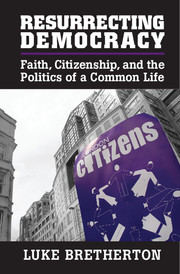Bibliography
Published online by Cambridge University Press: 18 December 2014
- Type
- Chapter
- Information
- Resurrecting DemocracyFaith, Citizenship, and the Politics of a Common Life, pp. 425 - 456Publisher: Cambridge University PressPrint publication year: 2014

